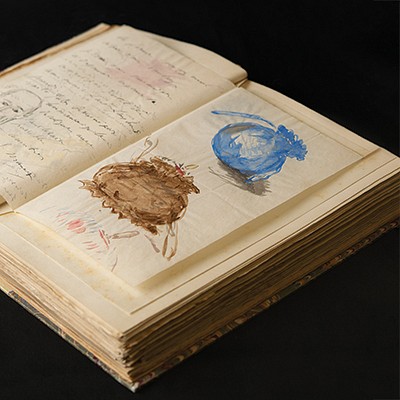Hattie McDaniel Signed Contract (Two Weeks After Gone With the Wind Premiere)
Two ways to bid:
- Leave a max absentee bid and the platform will bid on your behalf up to your maximum bid during the live auction.
- Bid live during the auction and your bids will be submitted real-time to the auctioneer.
Bid Increments
| Price | Bid Increment |
|---|---|
| $0 | $5 |
| $50 | $10 |
| $200 | $25 |
| $500 | $50 |
About Auction
Jun 14, 2023
RR Auction's June Fine Autographs and Artifacts sale boasts over 900 lots, highlighted by a special animation section of 200+ pieces of original production drawings, animation cels, and concept paintings from Disney classics like Snow White, Cinderella, and Alice in Wonderland. = RR Auction support@rrauction.com
- Lot Description
DS, 22 pages, 8.25 x 11, December 30, 1939. Contract between McDaniel and Selznick International Pictures, signed fifteen days after the premiere of Gone With the Wind. In part: "Producer employs Artist to render her services exclusively to Producer as an actress, performer, or entertainer in motion picture photoplays, television, and to make radiobroadcasts and personal appearances when, where and as requested by Producer. Term: From: January 1, 1940 (20 week guarantee) To: June 30, 1940. Compensation: $500.00 per week (20 week guarantee)." Eight options after the principal six month period ends are listed, raising McDaniel's salary to $550 per week to the end of 1940 with consecutive annual raises which would reach $1500 per week if she worked for Selznick through 1946. McDaniel also agrees to work for Selznick exclusively in "all future developments of the motion picture industry, including (but not limited to) television, black and white, color, silent, sound and talking motion pictures and their accompanying devices which reproduce words, music and/or other sound in synchronism with, in accompaniment of, or supplementary to, photography." Signed at the conclusion in fountain pen by Hattie McDaniel and countersigned by producer Daniel T. O'Shea. Stapled into its original. legal folder. In fine condition, with creasing only to the paper covers. Accompanied by an unsigned three-page summary of the contract, and a two-page autobiographical statement by McDaniel about the filming of Gone With the Wind.
Hattie McDaniel (1895-1952) was the first Black actress to win an Academy Award, capturing the Best Supporting Actress Oscar in 1939 for her role of Mammy in Gone With the Wind. McDaniel had a strong film resume even before Gone With the Wind, especially in light of the limited opportunities for black actors in that era, beginning with small roles in films like Mae West's I'm No Angel (1934) and Shirley Temple's The Little Colonel (1935), working up to major roles in Saratoga (1937) and The Shopworn Angel (1938). She was also the first Black woman to sing on American radio, and after many performances on such radio programs as Amos 'n Andy and the Eddie Cantor Show, she starred in the title role of Beulah on the radio. Because of other commitments, she appeared in only six 1952 episodes of the television version, which ran from 1950-1953.
Lawyer Daniel T. O'Shea was Selznick's top executive officer and right hand man. He was a key figure in various Selznick enterprises in the 1930s and 1940s, and rose to prominence in the Society of Independent Motion Picture Producers. This contract became null and void when Selznick International Pictures was dissolved in 1940. - Shipping Info
-
Bidder is liable for shipping and handling and providing accurate information as to shipping or delivery locations and arranging for such. RR Auction is unable to combine purchases from other auctions or affiliates into one package for shipping purposes. Lots won will be shipped in a commercially reasonable time after payment in good funds for the merchandise and the shipping fees are received or credit extended, except when third-party shipment occurs. Bidder agrees that service and handling charges related to shipping items which are not pre-paid may be charged to a credit card on file with RR Auction. Successful international Bidders shall provide written shipping instructions, including specified Customs declarations, to RR Auction for any lots to be delivered outside of the United States. NOTE: Declaration value shall be the item’(s) hammer price and RR Auction shall use the correct harmonized code for the lot. Domestic Bidders on lots designated for third-party shipment must designate the common carrier, accept risk of loss, and prepay shipping costs.
-
- Buyer's Premium



 EUR
EUR CAD
CAD AUD
AUD GBP
GBP MXN
MXN HKD
HKD CNY
CNY MYR
MYR SEK
SEK SGD
SGD CHF
CHF THB
THB














